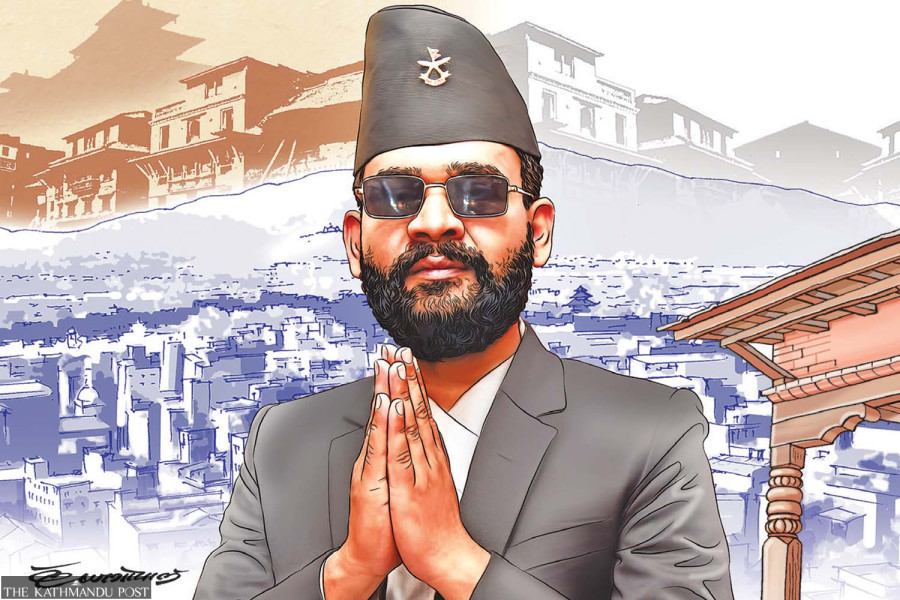Editorial
Shah v Singha Durbar
The perception of a malfunctioning federal setup does not help any of the three tiers of government.
The exalted offices of the high and mighty have been stinking—literally—for the past few days following what initially looked like Kathmandu Mayor Balendra Shah’s light-hearted weekend status update. But no, he was damn serious and had a litany of complaints against Singha Durbar, which he outlined in his follow-up social media updates. The garbage produced in the offices of the President, the prime minister and the ministers, plus other who’s who of the country, has been piling up within the four walls of those institutions. Call it revenge or revolt, the filth that Shah has left uncollected in these places has sparked debates from the Parliament to the street, and that is not necessarily unwarranted.
There is much to support or denounce in the point-by-point explanation Mayor Shah has put forth on social media regarding his decision to halt garbage collection from Singha Durbar, Official Residence of the Prime Minister, and Office of the President. The mayor said he had approached over a dozen relevant ministries to discuss smooth functioning of the affairs of Kathmandu Metropolitan City, including issues like road expansion, traffic light management, drinking water availability, illegal settlement management, and much more.
The mayor’s complaints reflect the neglect that has been the hallmark of governance in Nepal, where even the public officials and representatives, not least private sector stakeholders, who actually want to get some work done face more hurdles than opportunities. This is why the mayor’s revolt against Singha Durbar has resonated among the public. Singha Durbar, the nerve centre of governance in the country, has for long been a symbol of power that has little to do with the concerns of the public. The well-cordoned complex that hosts most of Nepal’s ministries is not even accessible to the public, let alone working for them.
But the mayor’s complaints also include issues that are either beyond the mandate of the local level or require nuanced and sustained coordination among the local, provincial and federal governments. There is no doubt that the state machinery has failed to appreciate the mandate of (and thereby delegate powers) to local governments. However, the City’s refusal to carry out its fundamental duty—the collection of garbage throughout its jurisdiction—sets a bad precedent. Kathmandu has long been grappling with the garbage issue, and such a step will only worsen an already precarious situation. The mayor’s excesses, therefore, while momentarily creating a stir on social and mainstream media, run the risk of sowing more chaos than he intends. We cannot have 753 different ways of dealing with the federal government based on the whims of the mayors/chairpersons of the local levels.
On a larger scale, the ugly spat has highlighted the non-cooperation and lack of collaboration between different layers of the government. Being a nascent federal republic, all institutions of the state are duty-bound to respect each other’s jurisdictions and establish symbiotic working relationships rather than turn against each other. Hence the federal government should immediately start negotiating with the Kathmandu mayor to settle the ongoing dispute amicably. Mayor Shah, for his part, also needs to internalise the scope of his office and what he can and cannot do. Meanwhile, no other public representative should try to emulate Mayor Shah’s excesses while dealing with state institutions or other stakeholders. A confrontation like this ultimately adds to the perception of dysfunction of the new federal setup, an insalubrious development for representatives of all three tiers of government under it.




 10.12°C Kathmandu
10.12°C Kathmandu














